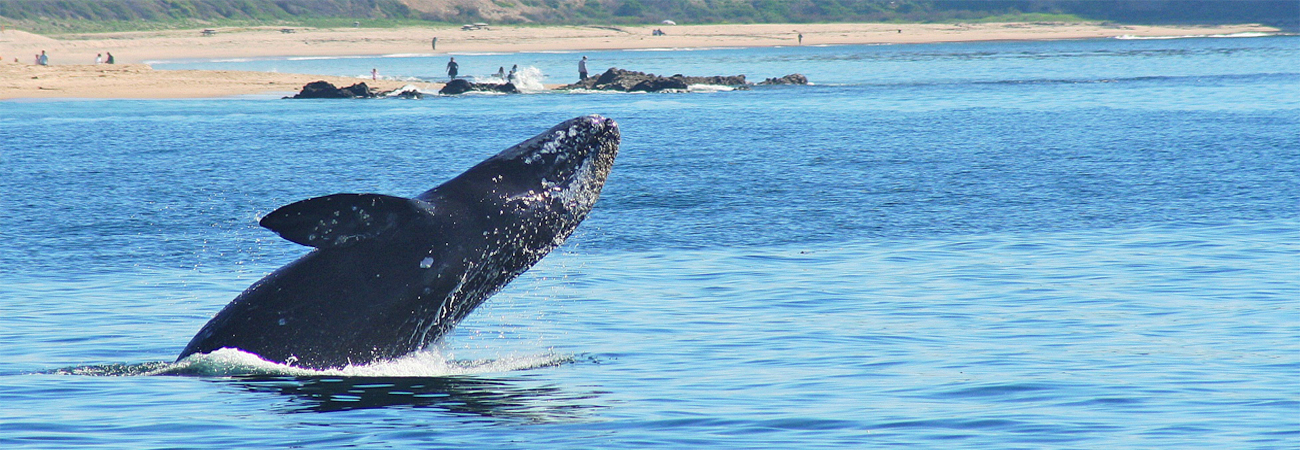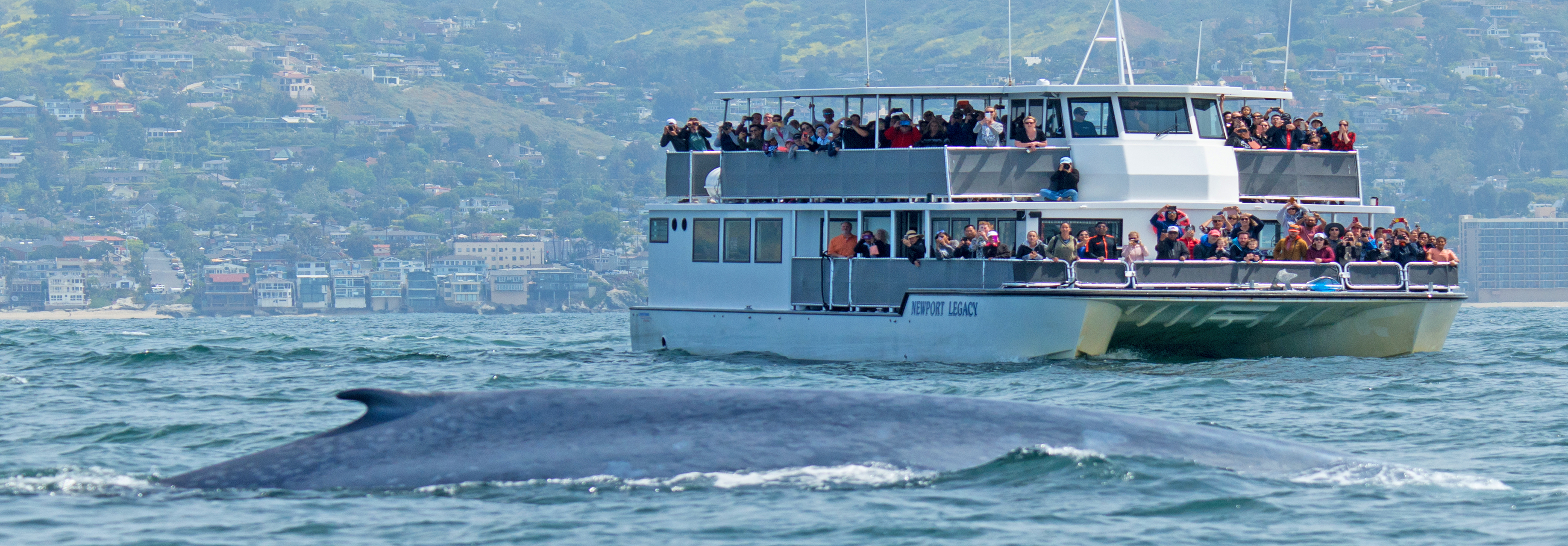
The Best Whale Watching Techniques
When going whale watching in Newport Beach, there are several techniques you can employ to enhance your experience and increase your chances of spotting whales. Here are some whale watching techniques you can try:
- Research: Prior to your whale watching trip, gather information about the types of whales that frequent the Newport Beach area during the time of year you'll be visiting. Learn about their migration patterns, behaviors, and preferred habitats. This knowledge will help you identify and understand what you see during the excursion.
- Choose the right time: Whales are more active during certain times of the day. Contact the whale watching company that you are booking with and inquire which time of day is more productive. They will be able to provide information if morning, early afternoon, or evening tours are typically when whale sightings are more common. The weather and sea conditions can also affect whale activity, so check the weather forecast and opt for calmer seas.
- Use binoculars: Bring a pair of binoculars or rent some from the whale watching tour company to help you spot whales that may be farther away. Binoculars can enhance your ability to see details and observe the whales' behaviors more closely.
- Look for spouts: Whales surface to breathe, creating distinctive spouts of water vapor when they exhale. Keep an eye out for these spouts, which can help you locate the general vicinity of the whales. Spouts can vary in size and shape depending on the species, so familiarize yourself with the differences.
- Scan the horizon: Take your time to scan the horizon in a systematic manner. Start from one side and slowly move your gaze from left to right or vice versa, sweeping the entire area. Look for any unusual movements, blows, or splashes on the water's surface.
- Watch for other signs: Besides spouts, there are other signs that can indicate the presence of whales. Look for dorsal fins breaking the surface, fluke dives (the whale's tail flipping up as it dives), breaching (when the whale propels itself out of the water), or pectoral fin slapping. These behaviors can provide captivating sights and help you locate whales.
- Listen for whale sounds: Some whales produce vocalizations, such as songs or clicks, which can be detected underwater. If the boat has a hydrophone (an underwater microphone), listen for any sounds transmitted through it. Captains or onboard naturalists may also share interesting information about the whales' communication.
- Stay patient: Whale watching requires patience and persistence. Whales are wild creatures, and their behavior is unpredictable. Sometimes you may need to wait for extended periods or visit on multiple occasions before encountering them. Enjoy the journey and the beauty of the ocean while remaining attentive.
Remember to follow any guidelines provided by the whale watching tour operator and maintain a respectful distance from the whales to ensure both their safety and yours. Enjoy your whale watching adventure in Newport Beach!

Reserve your whale-watching trip!
Make your online reservation below, or call (949) 675-0551 to reserve.
SHARE
FOR RESERVATIONS, CALL (949) 675-0551